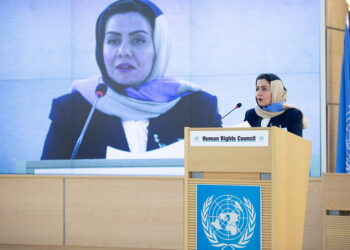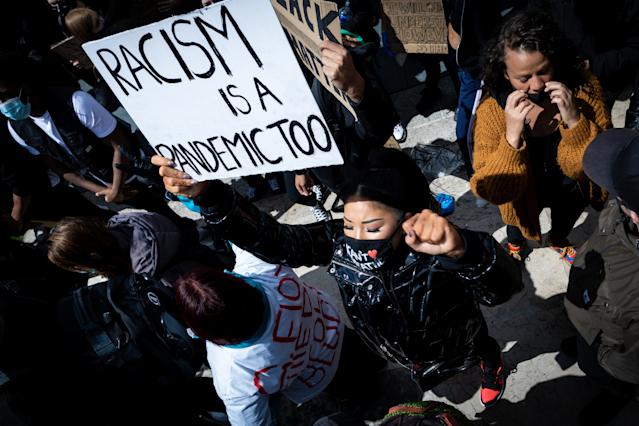Human Live Human Rights: In 2015, Mujahedin Khalq (MKO/MEK) Leader Maryam Rajavi in a meeting with Saudi Ambassador to Paris, Mohammad Al Sheikh, said that the group is willing to cooperate with Riyadh to carry out its attacks against the Yemen.
Rajavi also stressed that whenever Saudi Arabia requests help from the MEK, the organization is ready to implement its requests immediately and without any hesitation.
It seems that Rajavi is trying to find a foothold in Saudi Arabia in any way possible after the expulsion of this terrorist group from Iraq.
Reports suggest that Rajavi and Al Sheikh have met several times in Paris so far and Rajavi has thanked the Al Saud regime for its support and financial assistance over the past years.
Differences and similarities between the MEK and ISIS
If we have a look at the history of the activities of the Mujahedin Khalq (MKO or MEK) terrorist group, we can well understand the similarities and differences between the activities of this group with groups such as ISIS.
From the political perspective, the Mujahedin Khalq Organization, to reach their goals, whatever the way they choose, be it good or be it bad, all ways are justifiable for them and in order to gain power, they are ready to go to any extent. Their criminal acts in the process of their political activity are justified in the context of the interests and means of gaining power.
Any action that helps them achieve their goal and power is permissible in their opinion. Actions such as putting bombs in public places, killing ordinary and innocent people, assassinating citizens, attacking their own homeland, burning the opposition and so on. That is, a behavior that is quite similar to that of ISIL in Syria and Iraq (such as burning people, beheading in public, blowing up and bombing public centers and streets, and attacking their own cities, etc.) Therefore, given the similarity in behavior and actions of groups such as ISIS and the Mujahedin, Saudi Arabia will use these groups to achieve its interests in the region. To achieve this goal, the Saudi government has invested tremendous amount of money in supporting Salafi groups such as ISIS and the Taliban, as well as the Mujahedin.
One of the most basic of these is the use of cultural and educational tools to produce and spread a way of thinking that will ultimately develop human beings who will easily take actions similar to those of members of ISIL and the Mujahedin. The Saudi government seeks to achieve this goal by spending huge amounts of money on the cultural purposes, such as publishing books and establishing educational centers and schools, creating websites and Internet networks, allocating funds for the construction of mosques, and establishing educational centers in them.
Certainly, the focus of all these cultural activities is the struggle against the Islamic Republic of Iran and their school of thought in the Middle East, Africa, Central Asia and the Caucasus and even in Eastern and Western Europe.
The Saudi government’s support for the Mujahedin is in line with this. Saudi Arabia seeks to support groups such as ISIS and the Mujahedin and use them for the hegemony and power in the Middle East and around the world.
The Saudi government has always provided extensive financial and economic support to the group and equipped it with a variety of military tools. An example is the presence of the Mujahedin in Iraq and the allocation of the Ashraf military base to them. And all these years, the Saudi government has been providing political support to the Mujahedin Khalq Organization, trying to keep this destructive group alive in the political arena in any way possible.
The maximum effort of the Saudi regime against the Islamic Republic of Iran using MEK
The Saudi government was one of the first countries to support Iraq in the war against Iran since the victory of the Islamic Revolution, and provided extensive economic, military and cultural support to Saddam and the Mujahedin. During all these years, Saudi Arabia tried to support the opposition groups of the Islamic Republic of Iran and strengthen and keep them active in various ways.
One of these ways, was to use tools like countries like Iraq and Saddam Hussein, who had waged a public and face-to-face war with Iran. The second way the Kingdom tried, was to support, expand and assist the internal opposition forces and opposition groups active in Iran.
Today, however, Saudi Arabia has openly stated its position in support of the Mujahedin, publicly stating that their goal is to overthrow the power of the Islamic Republic of Iran. In this regard, it tries to use all the existing potentials in Iran, such as the differences in ethnic, religious and even economic perspectives, and in a way, tries to target and weaken Iran’s national solidarity.
The depth of Saudi Arabia’s hatred for Iran has led them to political stupidity. They support the Mujahedin, who, even abroad, have become a dead political group that is expiring.
On the other hand, in order to achieve this goal, to struggle against the Islamic Republic of Iran and its support for the Mujahedin, Saudi Arabia tries to give a democratic shape, having the support of the West, especially the United States and is trying its best to capture the support of Western human rights organizations.


















